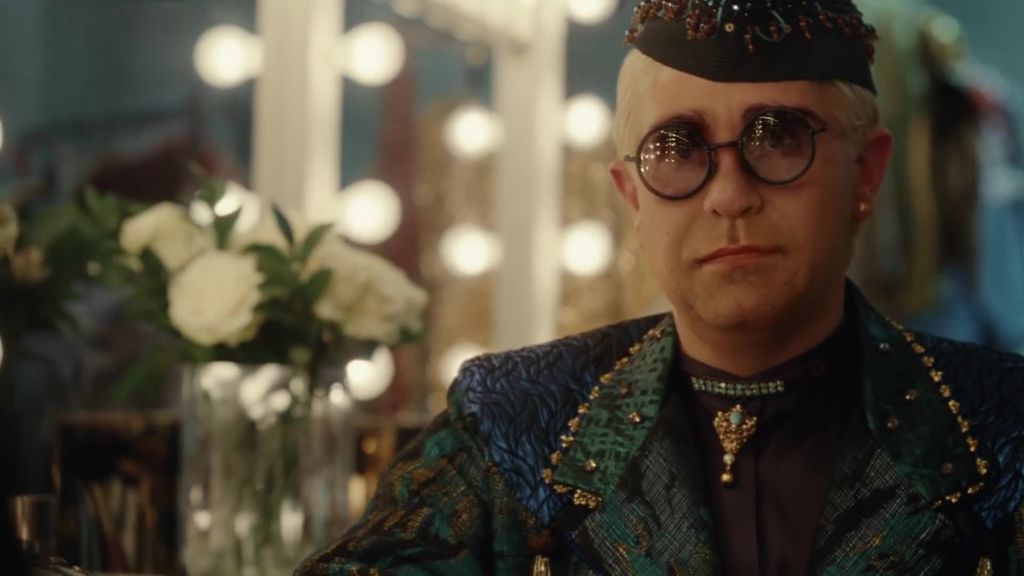Why one-off Christmas commercials are not always crackers
Fergus Hay, CEO and Partner at Leagas Delaney, is awaiting the flurry of festive ads with a feeling of trepidation at their lack of long-term branding. Here, he argues that brands need to build for more than just Christmas.
Brace yourselves, the Christmas ads are coming. A flurry of brands will, any minute now, be seeking to gain unfair advantage over their competitors, tug at our heartstrings, win a shiny award and maybe even secure a hit No.1 single along the way.
For every John Lewis, there are scores of brands trying to imitate them, but failing to make a commercial impact, and becoming utterly forgettable.
Yet, how many truly cut through the ad noise and succeed in doing this? Each Christmas we see articles listing the top 10 best festive ads that year, but how many can you recall? And how many can we in the industry agree build value over time?
John Lewis is often credited with ‘winning’ Christmas. Its highly polished use of emotional storytelling never fails to capture the nation’s mood. But for every John Lewis, there are scores of brands trying to imitate them, but failing to make a commercial impact, and becoming utterly forgettable.
Credits
powered by
- Agency Adam & Eve -DDB
- Production Company Academy
- Director Seb Edwards
-
-
Unlock full credits and more with a Source + shots membership.
Credits
powered by
- Agency Adam & Eve -DDB
- Production Company Academy
- Director Seb Edwards
- Post Production MPC/London
- Producer Shirley O'Connor
- Production Manager Rachael Donson
- Executive Producer Simon Cooper
- DP Chayse Irvin
- Production Designer Robin Brown
- Editor Sam Rice-Edwards
- Creative Director/Founder Anthony Moore
- VFX Kamen Markov
- VFX Producer Philip Whalley
- CG Supervisor Anthony Bloor
- CG Team Anthony Bloor
- CG Team Jessie Amadio
- CG Team Tom Carrick
- CG Team Charles Downman
- CG Team David Bryan
- 2D Team Kamen Markov
- 2D Team Jack Stone
- 2D Team Kalle Kohlstrom
- 2D Team Bevis Jones
- 2D Team Anthony Bloor
- Chief Creative Officer Richard Brim
- Executive Creative Director Ben Tollett
- Executive Creative Director Mike Sutherland
- Executive Creative Director Antony Nelson
- Producer Sally Pritchett
- Talent Elton John

Credits
powered by
- Agency Adam & Eve -DDB
- Production Company Academy
- Director Seb Edwards
- Post Production MPC/London
- Producer Shirley O'Connor
- Production Manager Rachael Donson
- Executive Producer Simon Cooper
- DP Chayse Irvin
- Production Designer Robin Brown
- Editor Sam Rice-Edwards
- Creative Director/Founder Anthony Moore
- VFX Kamen Markov
- VFX Producer Philip Whalley
- CG Supervisor Anthony Bloor
- CG Team Anthony Bloor
- CG Team Jessie Amadio
- CG Team Tom Carrick
- CG Team Charles Downman
- CG Team David Bryan
- 2D Team Kamen Markov
- 2D Team Jack Stone
- 2D Team Kalle Kohlstrom
- 2D Team Bevis Jones
- 2D Team Anthony Bloor
- Chief Creative Officer Richard Brim
- Executive Creative Director Ben Tollett
- Executive Creative Director Mike Sutherland
- Executive Creative Director Antony Nelson
- Producer Sally Pritchett
- Talent Elton John
Above: 2018's John Lewis Christmas commercial, The Boy and the Piano.
Yet, out of John Lewis’ amazing Christmas adverts - considered best-in-class – how many can you remember from the last decade? Two or three, I imagine, despite their brilliance. Five at a push. Now imagine how many it would be for the humble consumer, who doesn’t share our level of industry navel-gazing.
Are those captured imaginations coming at the cost of long-term brand building?
And that’s because, even though the season has grown to become almost three months long, it’s essentially hooked to a single day or moment, like a behemoth Super Bowl ad. The campaigns are fragmentary by nature, and space is limited. The message is often ‘buy X to make someone feel Y this Christmas’. And whilst Christmas is a cash cow for retailers – indeed for John Lewis it amounts to approximately a fifth of annual sales – there’s a risk that at this time of year brands overlook their value to customers all year round.
We need more creative ideas that plant as seeds, grow over time, resonate with consumers and therefore actually help change a business.
The same is true for many momentary, transient brand campaigns that mirror cultural events, trends and sentiments. Nike was excellent to back Colin Kaepernick, whilst also credibly building on an existing brand platform and a 50-year-old brand narrative that has built significant shareholder value. Badly done, the core messages can go stale overnight, despite capturing consumers’ imaginations. And are those captured imaginations coming at the cost of long-term brand building?
Credits
powered by
- Agency Wieden+Kennedy Portland/United States of America
- Production Company Park Pictures
-
-
-
Unlock full credits and more with a Source + shots membership.
Credits
powered by
- Agency Wieden+Kennedy Portland/United States of America
- Production Company Park Pictures
- Director Lance Acord

Credits
powered by
- Agency Wieden+Kennedy Portland/United States of America
- Production Company Park Pictures
- Director Lance Acord
Above: Colin Kaepernick stars in Nike's Dream Crazy.
As the number of messages consumers are exposed to grows on a daily basis, it’s increasingly hard to gain the necessary cut-through; the human brain only has finite capacity. So, whilst flash-in-the-pan creative ideas have their place, we need more creative ideas that plant as seeds, grow over time, resonate with consumers and therefore actually help change a business. These are the evergreen ideas that consumers can still recall when others have withered with the change of season.
And they don’t need to be generic to go the distance either. Look at Spotify’s recent Listen Like You Used To campaign, which is simultaneously drawing attention to the fact they have a vast catalogue of songs you’ve probably lost the CDs for, whilst also leaving room for consumers to imagine what their old favourite songs actually are. It’s personal, and crucially it has longevity as an idea.
For Patek, the heritage and success of both the brand and the message gives its individual campaigns an authenticity that a challenger brand may struggle to convey.
Equally the Snickers You’re Not You When You’re Hungry campaign has been running since 2010 and keeps being refreshed for new audiences, in impressively varied forms. It’s memorable, it focuses on a key benefit of the product, and some of them have been very funny.
Snickers – Snickers: Rap Battle
Spotify – Let The Song Play
Above: Snickers Rap Battle and Spotify's Let the Song Play, from its Listen Like You Used To campaign.
At the other end of the market is Patek Phillippe with its Generations campaigns, which have run for the last two decades. “You never actually own a Patek Phillippe, you merely look after it for the next generation” has provided the framework for some beautiful work over the years, growing the brand from niche artisanship, to become ‘the most desired luxury watch brand’, as voted by Wealth-X, all focussed on the importance of family itself and how a Patek can also come to hold a special place in a household.
Above: Patek Phillipe’s Generations campaign.
Patek Phillipe’s recent iterations, with its launch of the latest watch for women coupled with last month’s Generations campaign, were evidence of a long-term consistency as a value-creating platform. Both used that memorable tagline to showcase the lighter, more personal relationship that modern fathers have with their children. For Patek, the heritage and success of both the brand and the message gives its individual campaigns an authenticity that a challenger brand may struggle to convey.
Successful brands are for life, not just for Christmas.
Of course, that shouldn’t stop newer brands setting out the stall with a long-term brand vision in mind. There’s a growing opportunity to support the burgeoning number of hyper-growth brands to reach scale, and we know that unfair advantage is often won from consumers by being trusted and familiar. So, even for start-ups, that long-term thinking that engenders trust and familiarity needs to start somewhere, so why not now?
Even for start-ups... long-term thinking that engenders trust and familiarity needs to start somewhere, so why not now?
Ultimately, if ideas are to change businesses, there’s no quick-fix or silver bullet, and getting a million 'likes' means nothing if it leads to zero sales.
So, I’ll look forward to seeing the imminent onslaught of jingles this festive season, but I will be reminding myself that successful brands are for life, not just for Christmas.
)















